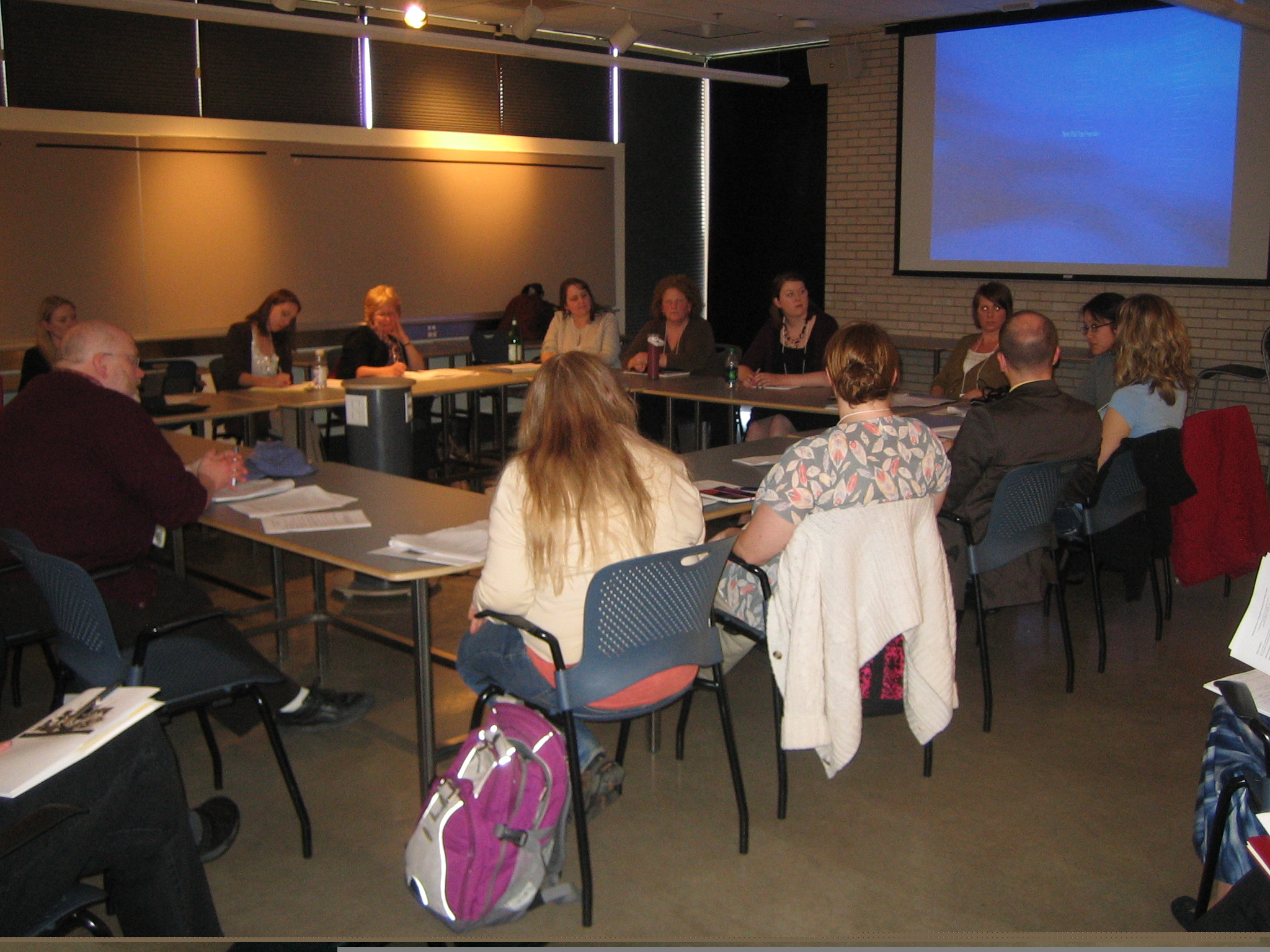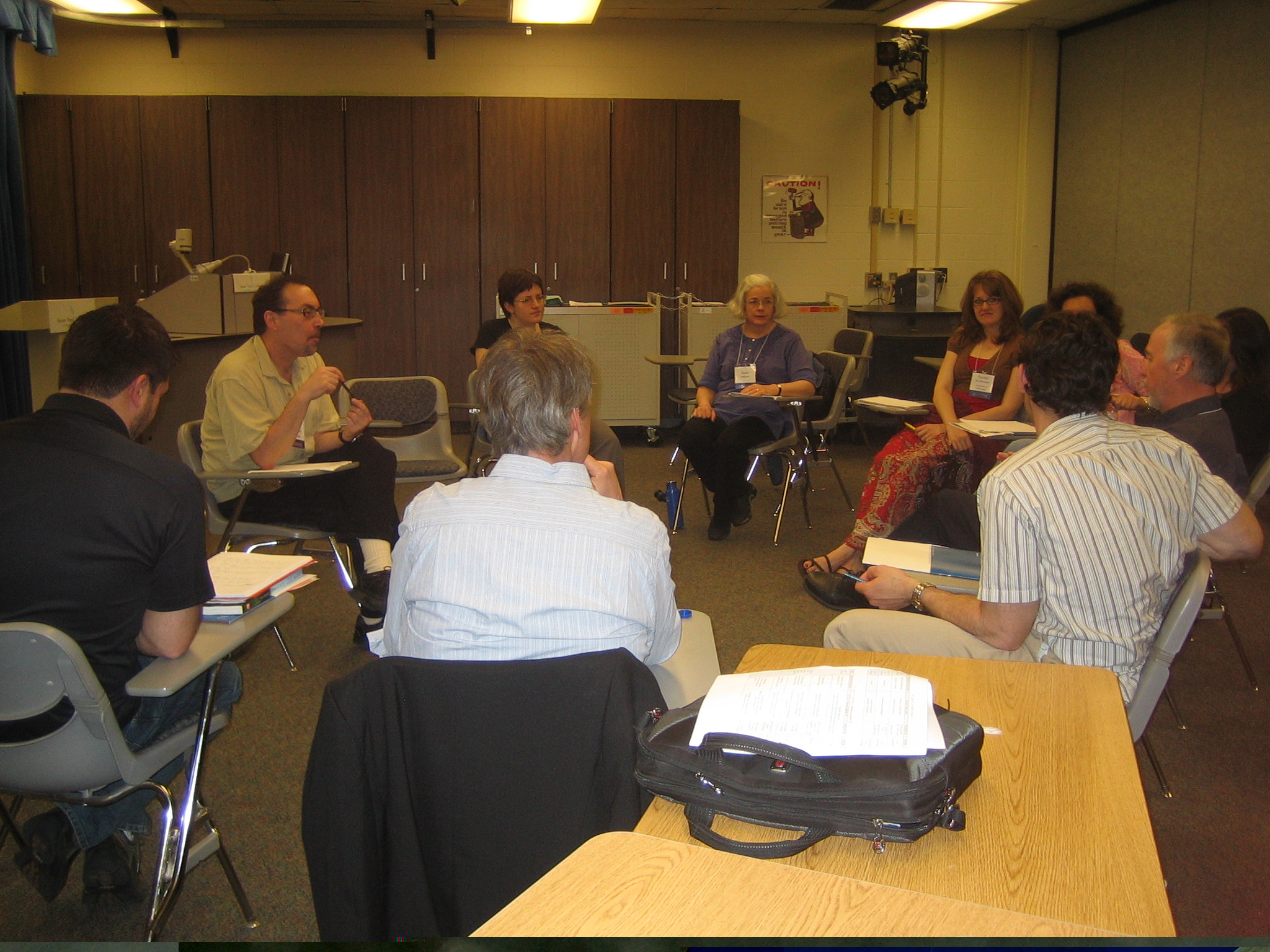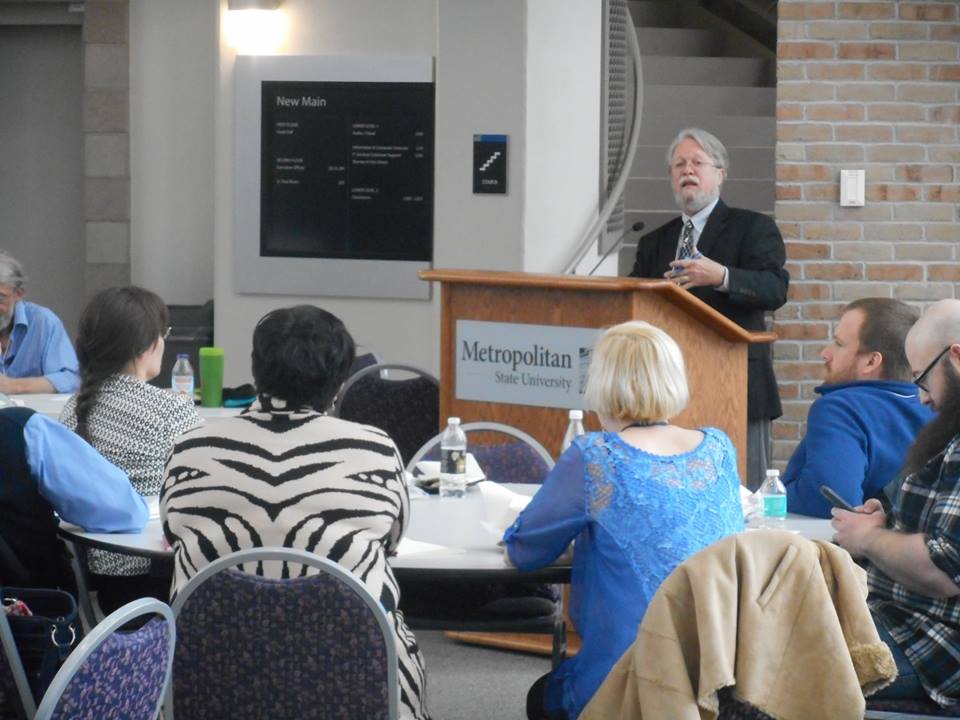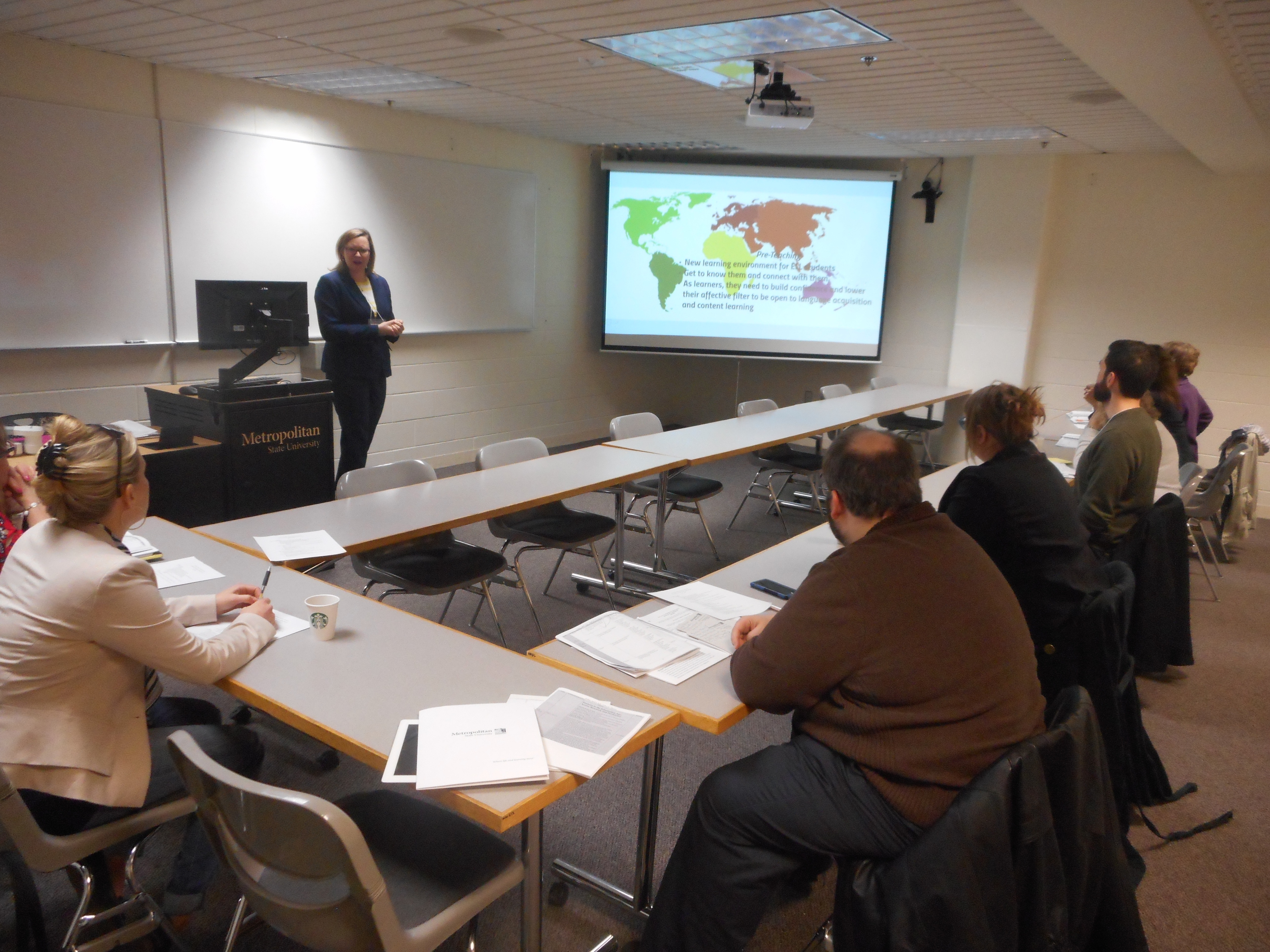|
MnWE News
Spring Issue
March-April 2021
2022
Conference:
Minnesota
Humanities
Center Thur.-Fri.,
Apr. 7-8
In this issue:
1. MnWE ZOOM
CONFERENCE MARCH
25-26 GREAT
SUCCESS
2. UMN-HARVARD-COLUMBIA
DEBATE ON
DEMOCRACY
1 PM, APR. 21
3. IS
THE CAT
IN THE HAT
BLACK?
MINSTRELSY AND
DR. SEUSS
(and Black Book Resources)
4. REVIEW:
Cristina
Henriquez’s
Book of Unknown
Americans
(and Latinx Book Resources)
5. NEWS BRIEFS:
Developmental Ed
Needs, Stressed
Online Students, Adjunct
Problems, and
Lost PhD
Programs
6. Free
Teaching/Learning
E-Newsletters
(in each issue)
7. About MnWE
(in each issue)
If you
are new to our
listserv,
welcome! We
never share your
address, and you
may always
unsubscribe at
the bottom of
any email.
If you
are a long-term
member of this
listserv, thank
you for your
continued
participation.
Our listserv
emails go to
about
2700 English,
Writing, and
subject-related
faculty in the
Upper Midwest
and beyond.
If you
are the head of
a program or
department,
please consider
forwarding this
email to your
graduate and
undergraduate
students. If you
did not receive
this newsletter
directly and
want to see it
every other
month, join us
by sending a
request to the
editor at jeweLØØ1
at umn
dot edu
(L zero zero
one). We suggest
you send a
permanent email
address. Also
email us if
you’d like
information
about joining
our meetings
five to seven
Fridays per
year, currently
on Zoom.
---
1. MnWE ZOOM
CONFERENCE MARCH
25-26 A SUCCESS—
135 REGISTERED
You are
welcome to view
our two featured
plenary panels
from the March
25-26 MnWE
Conference at
the links below.
Handouts from
some of the
roundtable
discussions also
are available
there.
The MnWE 2021
Conference was a
great success in
spite of our not
being able to
meet in person.
It attracted 135
people live
online, a
majority of them
presenters, for
a highly
interactive
two-day event.
Because
it was on Zoom,
MnWE was able to
welcome people
from all of
Minnesota’s
surrounding
states and six
others, and from
five countries.
The MnWE
Volunteer
Committee worked
hard to create
more
interactivity
for the Zoom
events.
Normally, the
conference has a
plenary and a
keynote each
day, but this
year, we
dispensed with
the keynotes so
that we could
create more
sharing and talk
during the
plenaries.
Plenary
panelists
received
honorariums for
the first time,
worked with each
other before the
conference, and
offered
additional time
for many
audience
questions and
comments.
In
addition, the
Committee
expected all
breakouts to be
roundtables with
just five to six
minutes of
presentation by
each discussant,
thus leaving
even more time
for discussants’
and audience
members’
questions and
comments.
Thursday’s
events also
began with a
popular
storyteller and
ended with a
successful Happy
Hour Reading;
Friday ended
with a helpful,
well attended
“Closure.”
Initial reports
from those who
attended say
that the
additional
interactivity
was deeply
appreciated and
enjoyed. In
general,
conference
attendees were
seeking more
opportunity for
community and
talk on Zoom by
attending MnWE
2021.
The MnWE
Committee hopes
to use some of
these changes in
future
conferences even
as we return to
meeting in
person again
next year. MnWE
2022 will be at
the Minnesota
Humanities
Center in St.
Paul
Thurs.-Fri.,
April 7-8 a year
from now.
---
Thurs., Mar. 25 Recorded Welcome and Plenary
Fri., Mar. 26 Recorded Welcome and Plenary
Materials Shared
by Conference
Presenters
---
2. UMN,
HARVARD, &
COLUMBIA EXPERTS
DEBATE
DEMOCRACY 1 PM, APR. 21
You may
join the
Minnesota
Humanities
Center online
for “Debating
Democracy Then &
Now,” 1:00-2:30
pm CST,
registration
$10. The three
debaters are
Tadd Johnson,
Senior Director
of American
Indian Tribal
Nations
Relations at the
University of
Minnesota; James
T Kloppenberg,
the Charles
Warren Professor
of History
(Emeritus) at
Harvard
University; and
Michele M.
Moody-Adams, the
Joseph Straus
Professor of
Political
Philosophy and
Legal Theory at
Columbia
University.
“Even in
a highly
polarized era,”
says the MHC
website,
“Americans agree
that democracy
is the essence
of the American
experience; they
just can’t agree
on what
democracy is.”
This facilitated
discussion will
offer insights
on democracy
from our
colonial past to
now. These three
experts–on
Indian matters,
history, and
political
philosophy–will
offer their
thoughts and
answer audience
questions.
Democracy is one
of the issues
some of you have
been bringing to
your classrooms
lately and
others of you
would like to
address. This
debate may help
focus your
creative ideas.
---
Info &
registration:
https://mnhum.org/event/debating-democracy/
---
3.
IS THE
CAT IN THE HAT
BLACK?
MINSTRELSY AND
DR.
SEUSS
Kansas
State University
professor Dr.
Phil Nel’s
Was the Cat in
the Hat Black?
The Hidden
Racism of
Children's
Literature, and
the Need for
Diverse Books
received
additional
notice recently
when Dr. Seuss’s
publisher
announced it
would no longer
publish six
Seuss books
because of
racist tropes.
Nel argues that
the famous Cat
in the Hat was
based on
blackface
minstrelsy.
The Chronicles
Race on
Campus
newsletter
recently
interviewed him.
According
to Race on
Campus, Nel
argues that much
of
twentieth-century
comic
characterization
reflected
blackface
minstrel
entertainers.
Nel says, “You
can look at
Mickey Mouse,
Bugs Bunny, the
Scarecrow [from
The Wizard of
Oz]. The
movements, the
white gloves,
the ridiculous
neckwear.”
Nel adds
that when Dr.
Seuss was in
high school, as
a student he
wrote and
performed in a
blackface
minstrel show.
The Cat, like
characters in
blackface, is
pretending to be
higher in status
than he really
is. And, says
Nel, the reason
that Seuss’s
publishers
haven’t stopped
producing Cat
in the Hat
as well is
because the
racism in it is
not overt. Dr.
Seuss also was
“influenced by
[the enormously
popular]
Krazy Kat,
[which was] the
creation of an
African American
cartoonist named
George Herriman,
and by an
African American
elevator
operator named
Annie Williams.”
Race
On Campus
asked Nel,
“Would you want
Dr. Seuss
Enterprises to
stop publishing
The Cat in
the Hat?”
Nel says,
rather, the
company should
admit the
influence and
continue selling
it. “If you
really want to
do social good,”
says Nel, “do
more than just
curate your own
catalog. Elevate
the voices of
nonwhite artists
and writers.”
And he suggests
you should
“acknowledge, as
the meme goes,
that all your
faves are
problematic.”
Cat in
the Hat and
Krazy Cat
can be purchased
online. In the
right contexts,
they might prove
useful in
evoking
classroom
discussions.
---
---
4.
REVIEW: The
Book of Unknown
Americans by
Cristina
Henriquez
Vintage, 2014.
Reviewed by Joan
Thompson
Cristina
Henríquez's
novel The
Book of Unknown
Americans
offers students
the opportunity
to know a cast
of characters
from multiple
Latin American
countries and
territories who
come together in
a run-down
apartment
building in
Delaware.
Central to the
book is the
relationship
between two
families, the
Toros from
Panamá and the
Riveras from
Mexico, and
especially their
children Mayor
and Maribel.
The Toros
left Panamá
after three
years of
disarray that
followed the
1989 U.S.
invasion and are
naturalized
citizens.The
Riveras give up
ownership of a
thriving
construction
company for a
work visa,
menial labor,
and a better
school for their
daughter who has
suffered a
traumatic brain
injury. As the
families become
friends and the
Toros help the
Riveras
negotiate the
U.S., they often
gossip about
other residents
of the
building. The
families'
friendship is
the background
for a growing
relationship
between Mayor
and Maribel, one
that adds
tension and a
Romeo and Juliet
twist that would
be familiar to
students.
Henríquez
primarily uses
alternating
first-person
chapters in Alma
Rivera's and
Mayor Toro's
voices. Alma's
chapters focus
on the
challenges of
adjusting to the
U.S., her
concerns for her
husband and
daughter, and
her fear of a
neighborhood
boy, Garrett
Miller. Mayor's
chapters explore
his challenges
with fitting in
at home and
school as well
as his growing
sense of caring
for and
protecting
Maribel.
A unique
aspect of this
book is chapters
in the voice of
other apartment
residents that
appear between
Alma's and
Mayor's
chapters. These
residents give
their own
stories, both
the push factors
that led them to
Delaware and the
challenges in
their lives. By
giving these
residents voice,
Henríquez
counters the
gossip the Toros
and Riveras
exchange as well
as broader
stereotypes tied
to immigration
and to residents
of U.S.
territories.
The
Book of Unknown
Americans
was a New
York Times
and a
Washington Post
Notable Book of
the year and a
National Public
Radio Great
Read. It was
longlisted for
the Carnegie
medal for
Excellence in
Fiction, and was
a finalist for
the Dayton
Literary Peace
Prize. Henriquez
has written for
The New
Yorker,
Atlantic,
American Scholar,
Wall Street
Journal, and
other national
magazines,
newspapers, and
literary
journals.
The
stories of the
Toros and
Riveras and
their children
as well as those
of the residents
of their
apartment
building add to
the richness of
the novel.
Henríquez's work
has much to
offer
instructors
adding diverse
voices to
literature and
composition
classes.
---
---
5. NEWS
BRIEFS:
Developmental Ed
Needs in 2-Yr.
Colleges,
Stressed Online Students, Difficult Times for Adjuncts,
and Goodbye to 100 PhD Programs
Union
says equity
requires more
developmental
education.
The Minnesota
State College
Faculty (MSCF)
is the union for
two-year
Minnesota
college faculty.
Its 2021
Delegate
Assembly meets
April 9. One of
its proposed
resolutions, it
says, is
important for
creating
appropriate
student equity
in Minnesota
colleges and
universities:
“MSCF insists
that an
essential piece
of ensuring
equitable
outcomes is
stable, fully
resourced,
effective,
faculty-led
developmental
education.”
The union lists
nine reasons.
Among them are:
“students
deserve the
support...needed
to succeed,”
“our
institutions
have contributed
to disparities,”
“[d]evelopmental
education can be
an essential
access point,”
and a “25 year
disinvestment in
higher education
has led to fewer
supports...and
increasing
obstacles” for
students. If you
are a Minnesota
two-year college
faculty member
and wish to
comment on this
issue, contact
your campus
representative
by Thursday
afternoon, April
8–or later for
an update. More
info:
MSCF Delegate
Assembly.
Overburdened
students? Do
you continue to
have online
students
complaining
about your
working them
harder–with
more, or more
difficult,
assignments–than
they used to
have for
in-person
classrooms? This
is a nationwide
continuing
complaint. For
additional
thoughts and
updates about
students’
concerns about
workloads,
possible reasons
for them, and
methods to
change student
assumptions, go
to
Overburdened
Students.
Are
contingent
faculty treated
fairly? If
you are
relatively new
to the
decades-old
issue of how
adjunct faculty
are treated,
especially
regarding job
security, a very
good summary of
the issues is in
a recent
Tomorrow’s
Professor
(#1845). Life is
even harder for
them in the age
of Covid.
Minnesota
colleges and
universities
tend to treat
their adjuncts
slightly better,
on average,
compared to
other states.
This is
especially true
where adjuncts
are part of a
union. Even so,
contingent
faculty have far
less job
security than
even the average
factory worker.
See
Adjuncts.
UMN English
and 100 Other
Doctoral
Programs in U.S.
Paused. UMN
English is one
of twelve
doctoral
programs not
accepting new
students this
fall to “save
money during the
pandemic and to
focus on
supporting
current
students.”
English has had
up to twenty
such students
per year in the
past. Chair
Andrew Elfenbein
says the
doctoral cohort
may shrink to
just five or six
students after
post-pandemic
programs
restart. More
than 100
doctoral
programs across
the country
similarly are
not admitting
new students. In
addition,
doctoral
programs are
less inclined to
graduate new
PhDs because
they will not be
able to find
permanent
positions in an
academic economy
that now has
fewer positions
for them. Go to
Pandemic PhDs in
Star Tribune.
---
6.
List of
Free
Teaching/Learning
E-Newsletters
(repeated
each issue)
Do you
feel out of
touch with
colleagues or
seek ideas from
other networks?
Connect by
subscribing to
these free email
newsletters. You
may start or
stop a
subscription at
any time.
NEA HigherEd,
National
Education
Association.
Weekly
political and
labor
news update:
Subscribe
Sample
Race on Campus
from
Chronicle of
Higher Education.
Weekly briefs
and information:
Sample
and Free
Subscription
Diversity
Insider,
National
Education Assoc.
Weekly news,
essays, and
advice:
Subscribe
Sample
The Source:
Updates,
MLA Style
Center. Weekly
pedagogy and
readings
updates:
Subscribe
(scroll to
bottom) Sample
Other free Style
Center e-letters
Always
available
online, the
Style Center’s
"Works Cited: A
Quick
Guide"
Teaching
from
Chronicle of
Higher
Education.
Weekly
brief
advice on
general methods:
Subscribe
Samples
Tomorrow’s
Professor,
Stanford
University.
Twice-weekly
reprint of a
pedagogy
article:
Subscribe
Sample
e-letter and
online version
The Campus View,
Minnesota
Private Colleges
(17 colleges).
Monthly
private college
news:
Subscribe
Past
issues
---
7.
About
MnWE: Old
Issues, Joining,
Who We Are, Grad
Credit,
Unsubscribing
(repeated
each issue)
Resoures
about/for
Online
Teaching:
www.mnweconference.com/resources.html.
Our
Newsletters:
New and old issues:
MnWE News
Forwarding/Joining:
Please forward
this email to
other
interested
faculty and
administrators.
Your newer
full-time and
adjunct faculty
members,
graduate
students,
writing center
tutors,
and English and
Writing
administrators
may not receive
it.
If you are
not on the
listserv and
would like to
join it, simply
send your
request and
email address to
jeweLØØ1
at umn
dot edu
(L zero zero
one).
We always enjoy
signing up new
list members.
Who
are we?
“MnWE” is
“Minnesota
Writing and
English,” an
all-volunteer
organization
started in 2007.
MnWE has a
coordinating
committee, a
listserv, and an
annual, two-day
spring
conference
attended by
100-200 faculty.
Our coordinating
committee, which
meets about six
times per year,
is composed
entirely of
unpaid college,
university, high
school, and
other
professional
English/Writing
volunteers.
All
activities are
by and for
college,
university, and
college-in-the-high-schools
English and
Writing
faculty,
graduate and
undergraduate
students, and
related academic
and literary
scholars,
writers, tutors,
and others in
the Upper
Midwest. Our
purpose is to
bring together
these
communities in
Minnesota and in
nearby states
and provinces.
Where are we?
Please visit us
online at
MnWE.org.
Our
geographical
center is
Minneapolis-St.
Paul. About
2700
faculty,
graduate
students,
tutors, and
related
administrators
see our
emails.
Those on
our listserv
receive this
newsletter six
times per year,
along with
additional
conference
announcements
and helpful
forwards.
Our listserv
members come
from state
universities,
public and
private two-year
colleges,
private colleges
and
universities,
high schools,
publishing
companies, and
the public
universities of
Minnesota,
Wisconsin, North
Dakota, South
Dakota, Iowa,
Illinois, and
other schools
and locations
in the
United States,
Canada, and
overseas
countries.
Conference:
At our annual
two-day
conferences,
our
speakers
highlight
pedagogical
concerns and are
scholars and
writers of
national
excellence from
both local and
national
locations. Some
of our
presenters come
from states or
countries far
beyond our own
geographical
area. The
majority of our
attendees and
presenters are
from
universities and
private
four-year
colleges; a
significant
minority
are in
two-year
colleges, high
schools, and
other groups.
Graduate
Credit:
Anyone may earn
one graduate
credit from
Southwest
Minnesota State
University for
attending
a
MnWE Conference
day and writing
a related
research paper
(up to three
such
credits may be
earned).
For questions
about this
course–“Eng 656:
MnWE
Practicum”–please
contact
lisa dot lucas
at smsu dot edu
or see
www.smsu.edu/academics/programs/english/?id=11637
.
Unsubscribing:
To unsubscribe
from this
listserv (and no
longer receive
the MnWE News,
MnWE Conference
announcements,
and other
forwarded
announcements),
please do so
yourself,
following
directions at
the very bottom
of this email.
If you try
unsubscribing on
your own without
success, then
send an email to
jeweLØØ1
at umn
dot edu
(L zero zero
one).indicating
(1) your
unsubscribing
action that
didn’t work, (2)
your specific
email address
copied from the
directions at
the bottom of a
MnWE mailing,
and (3) your
request for
removal.
Formatting:
Each of these
listserv emails
usually is
formatted in a
relatively
simple way using
html. If you
cannot read it,
please click on
the link at the
top right of
this email to
see the
newsletter on
the Web.
Questions:
We invite you to
email the editor
or any
coordinator on
the MnWE
Committee listed
below. You also
are always
invited to
attend any of
our five
to seven
MnWE Committee
meetings per
year: to join
the listserv,
email
jeweLØØ1
at umn
dot edu
(L zero zero
one)..
If you’d like to
attend a
meeting, or join
the committee
for in-person
meetings, Zoom
attendance, or
email comments
from a distance,
please
ask
Richard. In
addition, you
always are
invited to offer
suggestions to
MnWE, or to
volunteer your
leadership for a
session at the
annual
conference.
Copyright:
This newsletter
is written
primarily by
MnWE News
editor Richard
Jewell without
copyright so
that anyone may
quote,
paraphrase, or
forward any or
all parts
freely, unless
otherwise noted.
We do
ask that you
give credit to
the MnWE News
and/or
www.MnWE.org;
and when you use
material that
has been quoted
or paraphrased
in this
newsletter from
another source,
please be sure
to give proper
credit to the
original
source.
---
---
Richard Jewell,
General
Coordinator
Larry Sklaney,
Conference
Coordinator
Danielle
Hinrichs,
Program
Coordinator
Gordon Pueschner,
Help Desk
Coordinator
Jana Rieck,
Communications
Coordinator
Heidi Burns,
Guidelines
Coordinator
Ed Hahn, Web and
Registration
Coordinator
Kerrie
Patterson,
Treasurer
---
richard at
jewell dot net
- (612) 870-7024
larry dot
sklaney at
century dot edu
- (651) 747-4006
danielle dot
hinrichs at
metrostate dot
edu - (651)
999-5960
gordon dot
pueschner at
century dot edu
- (651) 686-4468
janaL dot rieck
at yahoo dot com
heidi dot burns
at mnsu dot edu
MnWE
.org
Minnesota Writing & English
A Consortium of
Colleges &
Universities
|

Mission:
Transforming
writing and
English
into teaching
and learning experiences using methodologies
that serve students best
Vision:
Bringing
scholarly ideas
and practical
pedagogy
together
to create our
futures
.JPG)
Donald Ross of
the University
of
Minnesota and
Taiyon Coleman
of St. Catherine
University run a
breakout session
about
literature. In a
later year, they
jointly provided
a MnWE keynote.

Geoffrey Sirc of
the University
of Minnesota
runs a small
breakout after
his keynote
presentation.
Many University
of Minnesota
faculty have
given
presentations at
MnWE, as well as
faculty and
graduate
students from
many other
universities,
colleges, and
high schools.

MnWE started in
2007.
The cofounders
were Richard
Jewell, here
giving a welcome
after lunch, and Donald
Ross, second
picture above.
MnWE has drawn
presenters from
Minnesota, the
states and
province around
it, and at least
five other
states and
countries.

During a 2016
breakout,
Beata Puschner
presents on improving
classroom
inclusion of ELL
students. MnWE
attracts a
variety of
people in other
departments and
positions, too,
from ESL and
Reading to
Library Science
and
college-in-the-high-schools
faculty.
|